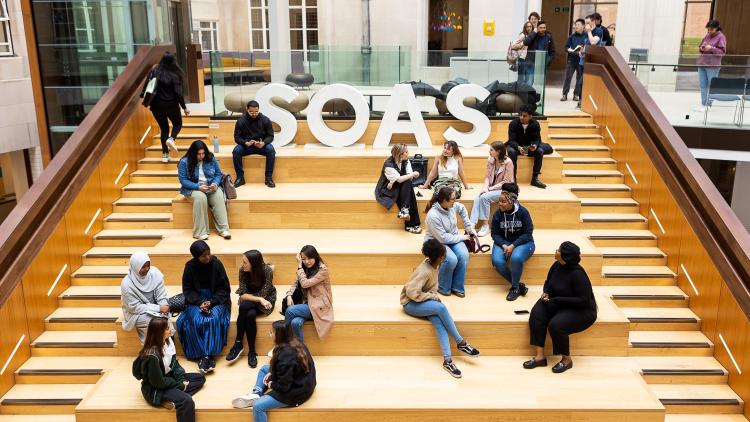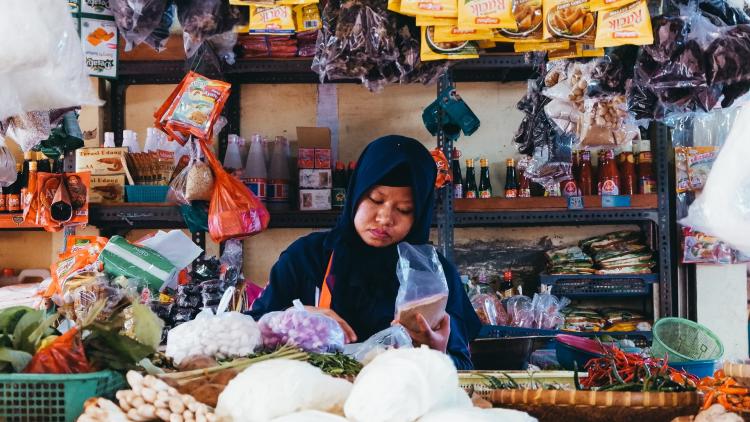Professor Mushtaq Khan

Key information

- Roles
- Department of Economics Professor of Economics Academic Staff, SOAS South Asia Institute
- Department
- Department of Economics
- Qualifications
- BA (Oxon), MPhil, PhD (Cantab)
- Building
- Russell Square, College Buildings
- Office
- 233
- Email address
- mk100@soas.ac.uk
- Telephone number
- 020 7898 4546
Biography
Mushtaq Khan is a Professor of Economics at SOAS University of London.
He is also head of the FCDO (UK government)-funded Anti-Corruption Evidence Research Consortium (SOAS-ACE) and joint head of the FCDO funded SOAS-Yale partnership, Research and Evidence on Nepal’s Transition (RENT), working with the British Embassy in Kathmandu.
He is a leading thinker on political settlements (an analytical framework he developed for assessing why institutions perform differently across countries), effective policy implementation, governance, industrial policy, institutional economics, political economy, and anti-corruption.
The SOAS-ACE research consortium has developed an innovative evidence-based approach to identify feasible (enforceable) and high impact anti-corruption strategies in countries with a weak rule of law (https://ace.soas.ac.uk/). The programme works in Asia and Africa with a focus on Nigeria, Bangladesh, Tanzania and a number of other countries, and is recognized as one of the important research programmes currently supported by the FCDO.
The RENT programme that he jointly heads with Yale works with FCDO programmes in Nepal to challenge and test the underlying assumptions that are implicit in the design of these programmes and to provide evidence-based analysis that helps the British Embassy to design more effective development assistance.
Prior to this Mushtaq has led multidisciplinary and multi-country research programmes informing development policy, including UK aid’s three-year Governance and Growth Research Programme 2007-2010, conducting research in Bangladesh, Tanzania, India and Thailand on political settlements, technology policy, and the evolution of property rights. He was joint leader of a research programme on governance and growth for Agence Francaise Développement, AFD, from 2010 to 2013. This covered research on seven countries in Asia, Africa and Latin America. He has also led a six-year Ford Foundation multi-country research programme (2008-14) on governance and growth in India, Bangladesh and Thailand.
Mushtaq has been a member of the United Nation Committee of Experts on Public Administration (2009-17) and the World Bank's Panel of Experts on Policy Implementation (2012-16). He served on task forces on Africa and on Industrial Policy set up by Professor Joseph Stiglitz under the Initiative for Policy Dialogue at Columbia University. He has been Visiting Professor at Chulalongkorn University, Bangkok and at Dhaka University, Bangladesh.
Mushtaq has given evidence to the UK House of Commons on several occasions including on aid to Palestine, and on anti-corruption strategies, and is regularly invited to high level meetings with UK government ministers and officials to provide inputs in policy discussions.
He has spoken widely on anti-corruption, feasible governance reforms, industrial policy, political settlements and economic development, and is regularly invited to deliver keynote speeches at events such as the African Development Bank's African Economic Conference and the Commonwealth Ministerial Forum on Public Administration.
His work is published and cited globally and has won a number of prizes including his article in the journal Democratization, which received the annual Frank Cass Prize for the article that 'most advances our knowledge and understanding of democratization'. His political settlements framework has been extensively used in several major research consortia in the UK including the Effective States and Inclusive Development programme (ESID) at the University of Manchester, the African Cities Research Consortium (ACRC) at the University of Manchester, and the Political Settlements Research Programme led by the University of Edinburgh.
Mushtaq was born in Bangladesh. He has a First Class degree in Philosophy, Politics and Economics from the University of Oxford and holds a PhD in Economics from the University of Cambridge, where he subsequently spent 6 years as Assistant Director of Development Studies at the Department of Land Economy and was a Fellow in Economics at Sidney Sussex College, Cambridge. He joined SOAS in 1996.
He has written and researched in many countries including Bangladesh, Nepal, Thailand, Palestine, South Africa, Tanzania, Nigeria, India, Cambodia, Pakistan, and Malaysia.
Research interests
Institutional economics, Rent-seeking economics, Corruption and clientelism, Industrial policy and state intervention in developing countries. South and South-East Asian economic development, Indian subcontinent.
PhD Supervision
| Name | Title |
|---|---|
| Olusola Adejoke David-Borha | The Challenges and Opportunities of Risk Mitigation in the Nigerian Electricity and Telecommunications Sectors: A Political Economy View |
| Mr Sebastian Heinen | Distinct Industrial Policy in an Adverse-Context State: Coffee, Construction and Tourism in Rwanda |
| Charlotte Hübner | “The Role of the Oil & Gas Sector in Late Industrialisation: Lessons from Malaysia” (Working Title) |
| Christopher Littleboy | Customary tenure and tenure reform in Nigeria |
| Suraj Janardhan Nair | The Political Economy of Malaysian Development Banking. |
Publications
Contact Mushtaq
- Telephone




